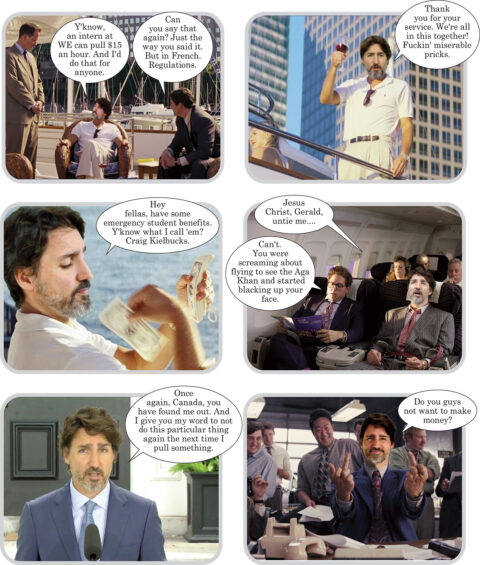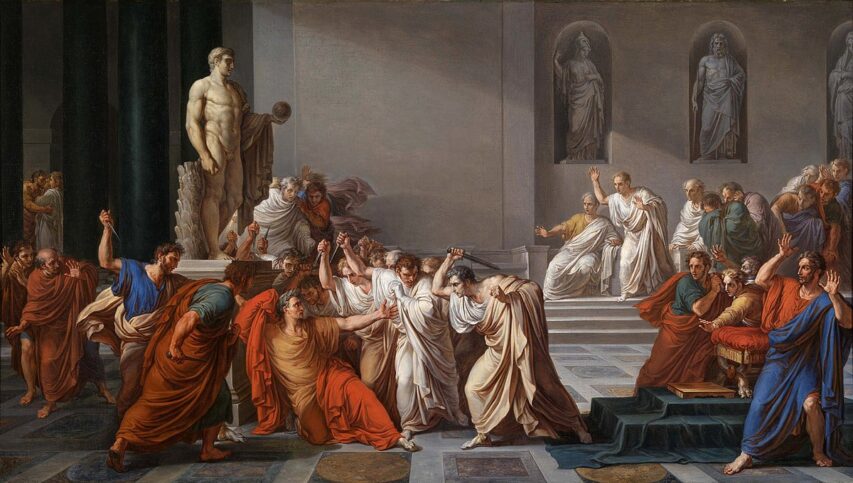In Quillette, Christopher J. Ferguson considers the social dangers of sharing political memes:
Modern politics has always been replete with issues about which people feel passionate, sometimes aggressively so. But the culture wars currently raging in the US, Canada, and across much of the industrialized West seem to be particularly fraught. In my 50-plus years, I have never seen so much anger and hostility among citizens of otherwise stable countries. Some of these people will participate in protests or engage in civil disobedience, but many more will employ the political meme to express their discontent. Given how widespread the phenomenon has become, it’s worth asking whether political memes actually advance advocacy goals and our knowledge of important issues, or if they simply feed an unconstructive cycle of anger, misinformation, and polarization.
The term “meme” was coined by Richard Dawkins, who used it to describe units of culture, socially transmitted and imitated across generations in ways synonymous with genes — adaptive ideas survive, while maladaptive ideas perish. But in the social media age, the word usually refers to “an image, video, piece of text, etc., that is copied and spread rapidly by Internet users often with slight variations”. The subset of memes that focus on politics are generally designed to boil complex issues down to a digestible combination of emotive image and sloganeering text that flatters those who agree with its message and provokes those who do not.
Most academics who study memes agree that they are poisonous to healthy public discourse (“toxic” is a word that crops up a lot, even in the scholarly literature). One scholar bluntly called them “one of the main vehicles for misinformation”, and they tend to distort reality in several ways. By their very nature, they leave no room for nuance or complexity, and so they are frequently misleading; they tend to lean heavily on scornful condescension and moral sanctimony (usually, the intended takeaway is that anyone who agrees with the point of view being — inaccurately — mocked is an imbecile); they make copious use of ad hominem attacks, straw man fallacies, and motte-and-bailey arguments; they intentionally catastrophize, generalize, personalize, and encourage dichotomous thinking; and they are aggressive and sometimes dehumanizing. They are, in other words, methods of Internet communication that display all the symptoms of a borderline personality type of mental disorder. Of course, it’s possible to construct a meme that is short yet still thoughtful and sophisticated, but these are few and far between.
The best evidence we have today is incomplete and limited, but it suggests that political memes have a net negative effect on society. If the idea is to persuade or advance practical advocacy goals, then there is little evidence that they work. To the contrary, they may be counterproductive — the evidence we do have suggests that they contribute to political polarization, distort issues in the name of political expediency, and provoke indignation, hatred, and intolerance (on both sides of the political spectrum). Yes, the available evidence is fragmentary and would certainly benefit from better and more open science designs. However, it accords with larger observations about social media and political polarization. Perhaps new and better research will reveal that alarm about the negative effects of memes is simply another moral panic comparable to those that arose around video games or smoking in movies. But since memes add almost nothing to public discourse that would offset the risks, it’s probably worth hesitating before sharing them.
I save the odd meme that wanders through my various social media sites that I find amusing or (occasionally) effective, and memes as described in this article certainly do seem to be far more common than they were even a few years ago. A few selections below the fold, just because:






